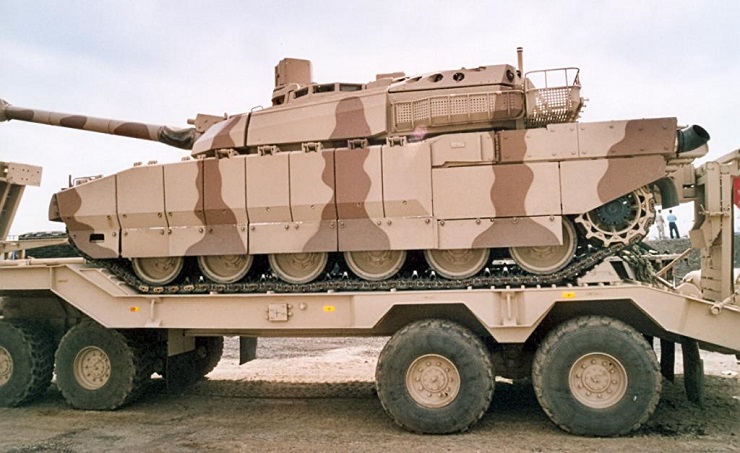While the European Union, every now and then, continues to express its ‘anger’ over the alleged use of chemical weapons in Syria, even more evident is the conspicuous absence of likewise criticism in EU of the atrocities being committed in Yemen, where Saudi Arabia has waged a war against the Houthis. The EU’s silence is not just meaningful; it is even criminal as a number of big members of this union continue to remain major providers of weapons to the House of Saud and its primary ally, UAE. This silence, therefore, throws significant light on the political economy of the war in Yemen, whereby both the wager and the sponsor profit either in terms of their so-called ‘national security’ or in terms of earning high profit. The Yemenis, of course, remain the targeted field. And, while there have been going on campaigns for some time now in the UK, France and Germany against selling weapons to Saudi Arabia, Yemen remained among the subjects not discussed publicly during Mohammad Bin Salman’s maiden visit to Europe, underscoring Europe’s endorsement of Saudia’s Yemen war, a war that is notorious for targeting non-military targets indiscriminately.
While the Arms Trade Treaty (ATT) stipulates that arms and weapons may not be supplied to countries where the use of these weapons may contribute to serious violations of human rights and contribute to the creation or exacerbation of humanitarian crisis, Europe has completely ignored the treaty and has blatantly been providing weapons, taking its deals as business-as-usual.
As such, since 2015, only the UK has provided Saudi Arabia weapons worth over £3.7 billion. According to reports of Amnesty International, the United Kingdom’s exports to Saudi Arabia saw a whopping increase of 48 per cent in 2012-2016. Among the major weapons and systems that the UK provided are 20 Fighter Ground Attack Typhoon Block 20 aircraft worth $1.15 billion; 2,400 guided Paveway bombs worth $48 million; 50 Storm Shadow/ SCALP cruise missiles worth $70 million; and two Air Refuelling systems worth $20 million.
And while France’ Macron expressed his concern, during Mohammad Bin Salman’s visit, over the crisis in Yemen; he didn’t hesitate to unequivocally defend France’s sale of weapons to Saudia. And why wouldn’t he? Only in 2016, France sold over €1bn worth of weapons to Saudi Arabia. War is good for business, Macron implied.
Another major provider of arms to Saudi Arabia has been Germany since the beginning of the war in Yemen. By November 2017, Germany had already provided Saudi Arabia weapons worth millions of dollars. In 2016, Germany sold the House of Saud weapons worth €560 million. And, while Germany has now halted supply of weapons due to increasing opposition to sale of arms, the fact remains that this halt has not led to an immediate ban on sales. In fact, the halt is only temporary and the German government is only using it to negotiate and pacify the opposition. In simple words, the German government, much like France and the UK, is only going to tell the opposition how important it is to continue to supply weapons to Saudi Arabia, the second biggest buyer of German weapons. In other words, the German government will be busy giving presentations to the opposition, telling them how profitable the war in Yemen has so far been for them and that they would be able to earn a lot more if they decide to continue to feed it. That German government has no intention of stopping altogether supply of weapons to Saudi Arabia is evident from the fact that the year 2017 saw it quintupleting its arms sale to Saudi Arabia.
With major European countries thus being the prime suppliers of weapons to Saudi Arabia, they are not only violating the ATT of which all of these countries are signatory, they are also violating the EU code of conduct on arms export, according to which the members are not to supply weapons, use of which may contribute to regional stability.
Europe, by thus directly feeding the war in Yemen, has established its standards of hypocrisy. And, while the EU has brought no resolution against the Saudi atrocities in Yemen, it was vocal enough to table and support a resolution against Iran for its violation of embargoes on supply of arms to Yemen.
Earlier in February 2018, all the major suppliers of weapons to Saudi Arabia (the US, the UK, France) went to the United Nations, which has ironically itself repeatedly criticized Saudi Arabia for creating a worst humanitarian crisis, to mull Iran over alleged violations.
Notwithstanding the hypocrisy, the UN experts still said that they had found “no evidence as to the identity of the supplier, or any intermediary third party” of the missiles fired by the Houthis into neighboring Saudi Arabia. And while the supporters of the resolution argued that Iran still must be held responsible and embargoes be imposed on it for failing to prevent this supply, no likewise resolution has ever been tabled by these very countries against Saudi Arabia which, according to the UN’s own reports, has been directly involved in killing thousands of civilians, targeting schools and hospitals alike.
Official support for the war in Yemen, therefore, remains high in Europe. And, it will remain high as long as the revenue earned from it remains high. Unlike Syria, where Europe is unable to make money and is having to host refugees as well, Yemen is a crisis which has neither created a refugee crisis for Europe, nor has it drove them to the brink of defeat (at the hands of Russia as in Syria). Their support is, therefore, likely to continue and even increase as the British prime minister stressed a few days ago. European guns and hypocrisy will, therefore, continue to roar loud as the Saudis will continue to pound Yemen.
Salman Rafi Sheikh, research-analyst of International Relations and Pakistan’s foreign and domestic affairs, exclusively for the online magazine “New Eastern Outlook”.

